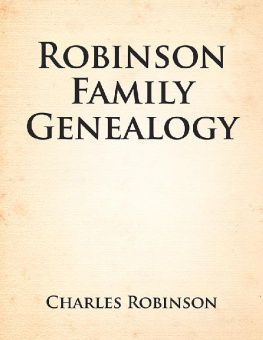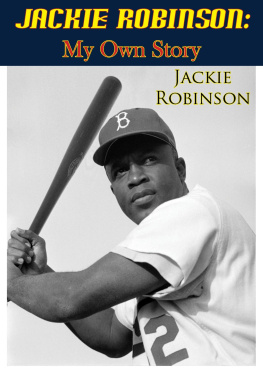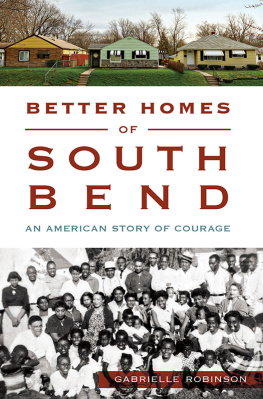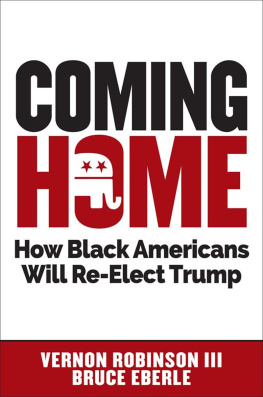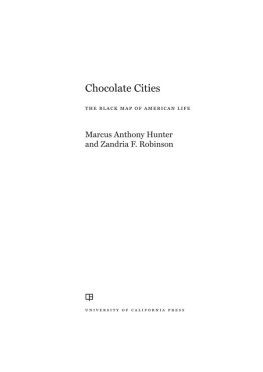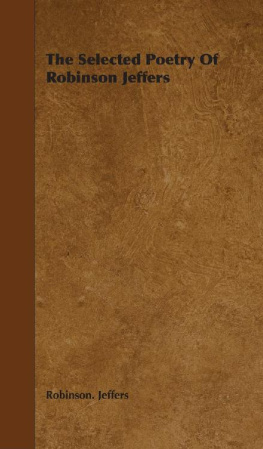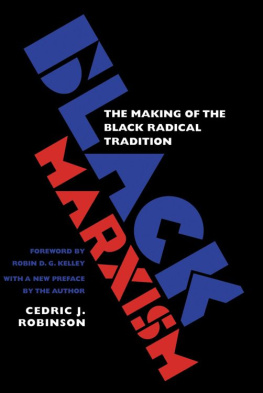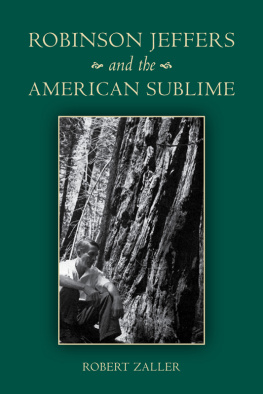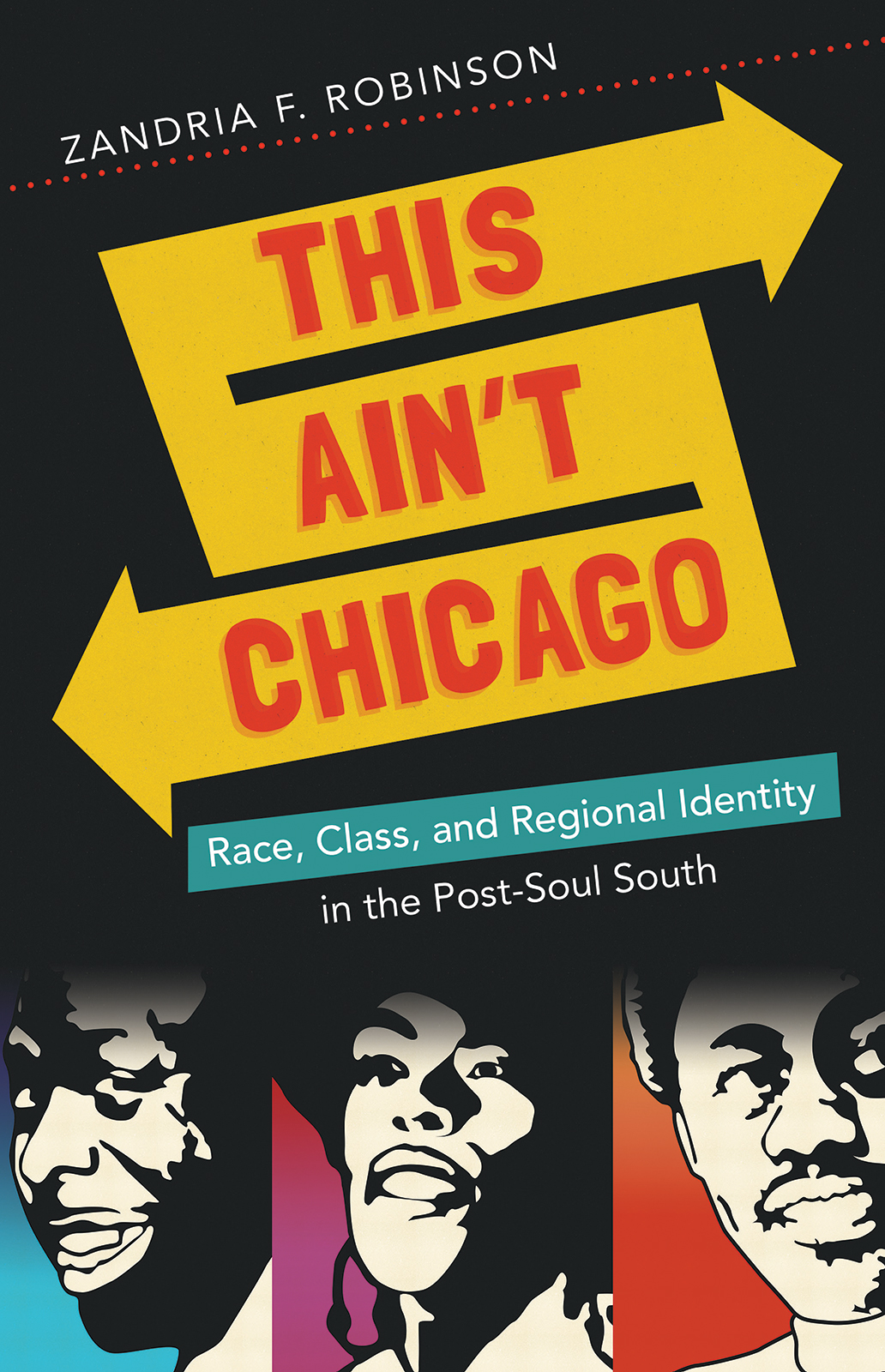
Contents
This Aint Chicago
New Directions in Southern Studies
Editor
Charles Reagan Wilson
Editorial Advisory Board
Robert Brinkmeyer
Thomas Holt
Anne Goodwyn Jones
Alfred J. Lopez
Charles Marsh
Ted Ownby
Tom Rankin
Jon Michael Spencer
Allen Tullos
Patricia Yaeger
This book was published with the assistance of the Fred W. Morrison Fund for Southern Studies and the Authors Fund of the University of North Carolina Press.
2014 The University of North Carolina Press
All rights reserved
Set in Utopia and Aller types by codeMantra
Manufactured in the United States of America
The paper in this book meets the guidelines for permanence and durability of the Committee on Production Guidelines for Book Longevity of the Council on Library Resources. The University of North Carolina Press has been a member of the Green Press Initiative since 2003.
Library of Congress Cataloging-in-Publication Data
Robinson, Zandria F.
This aint Chicago : race, class, and regional identity in the post-soul South / Zandria F. Robinson.
pages cm. (New directions in Southern studies)
Includes bibliographical references and index.
ISBN 978-1-4696-1422-9 (pbk.) ISBN 978-1-4696-1423-6 (ebook)
1. African AmericansTennesseeMemphis. 2. African AmericansRace identityTennesseeMemphis. 3. African AmericansSocial conditions1975 4. Memphis (Tenn.)Race relationsHistory20th century. 5. Memphis (Tenn.)Social conditions. I. Title.
F 444. M 59 N 488 2014
305.896073076819dc23
2013041271
18 17 16 15 14 5 4 3 2 1
To
DeMadre Kareem Lockett (19792004), who believed all southerners rode horses and buggies
Contents
Preface
During the first several months of fieldwork for this research, when my ability to channel anthropologist and folklorist Zora Neale Hurston was far more unpracticed than I like to imagine it is now, my interview sessions had notoriously bumpy takeoffs. Careful not to assume an insider status and cognizant of my position as a young, middle-class black woman, I painstakingly went through the institutional review board consent form with respondents. Invariably, one glance at the form and the Northwestern logo it carried would bring my spiel to an abrupt halt, as the respondent would interrupt me and say some version of the following: Northwestern? [Side eye.] Well, I hope you know this aint Chicago. [Eye roll.] At first, I assumed respondents thought I was from Chicago, or had been Yankeefied and therefore corrupted by my time there. Since I went to great lengths to interview persons whom I had not known personally or known of through social networks prior to my research, respondents may not necessarily have known that I was from Memphis. Often their declarations were followed by colorful explanations of why thisby which I assumed they meant the city of Memphiswas not Chicago. These explanations ranged from the usual distinctions between South and North, like Things are more family-oriented here or People are backward here, to things like This is where the real black folks are here or This is where it all began.
I also thought respondents might have been making an observation about social distance and that their admonishment was a warning to me not to make certain class-based assumptions. This line of thought was largely fueled by my desire to flatten the social distinctions between respondents and myself. I believed controlling my unacknowledged biases and blind spots as a black southerner from Memphis investigating black southern identity in Memphis was essential to the integrity of the research. Managing class and experience distinctions that might have influenced respondents to be less than forthright with me was part of that process.
As the research continued, however, I realized that this aint Chicago was not about respondents reactions to me as the researcher. Nor was it about Memphis or Chicago, those fabled stops on the City of New Orleans Amtrak line that runs from the Jazz City to the Blues City to the Windy City with stops in between. Rather, this aint Chicago was akin to OutKast rapper Andr 3000s now famous utteranceThe South got something to saymade amid boos from East Coast and West Coast emcees when the duo won big at the 1995 Source Awards. The admonishment was against conceptualizing black identity through a northern lens, which, for respondents, included not only Chicago but also New York, Los Angeles, Philadelphia, Detroit, and anywhere else outside of the former Confederate and Border States. It was about compelling recognition of a distinct southern black experience and reclaiming a space for southern black identity in the broadening landscape of black identity articulations. Nearly twenty years after Andr 3000s representing for the region, my respondents would argue that the South still got something to say and, moreover, that we had better listen.
My southern rearing in Memphis is a reflection of what my respondents herein argue is the best of both worlds interplay between urban and rural sensibilities in the contemporary South. Though for many of them, I have not spent enough time in the country to be comprehensively southern, I am nevertheless heeding the ever-echoing call to tell about the South. In This Aint Chicago, I tell about the South with attention to the multiple levels on which the South is constructed, experienced, and performed, especially for and by postcivil rights generations of black Americans.
Acknowledgments
This project would not have been possible without a community of family, friends, mentors, and colleagues. Wanda Rushing provided support for early versions of these ideas and continued to champion me throughout my early career. At Northwestern, Wendy Griswold, Mary Pattillo, and Chas Camic believed deeply in this project, even when I could not, and always pushed me to ask and address difficult questions about the empirical and theoretical nature of culture and identity. The opportunity to take part in Northwesterns Culture and Society Workshop helped me test and develop these ideas, and colleagues Jean Beaman, LaShawnDa Pittman, Mikaela Rabinowitz, Nicole Martorano Van Cleve, and Yordanos Tiruneh were always especially supportive. Wonderful friend and colleague Marcus Hunter was and is my undying ace in innumerable ways, and I quite literally would not have made it without him. His personal strength, generosity, and intellectual tenacity made me a better scholar and person, and for that I am eternally grateful. Steadfast friends and advocates for regional analysis Dave Ferguson and John Eason at the University of Chicago plotted with me to bring the South back into sociology, and our interlocutions were especially important for shaping my ideas about sociology in and of the South.
I am grateful to my wonderful colleagues at the University of Mississippi in the Department of Sociology and Anthropology and at the Center for the Study of Southern Culture. I relished being loud with Barbara Harris Combs and am especially thankful for the unerring support and friendship of Kirsten Dellinger. Charles Reagan Wilsons belief in this work undoubtedly buoyed it in the lean times. Conversations with graduate student INasah Crockett about the South, hip-hop, and expressive cultures pushed my cultural analyses forward, compelling me to consider representation, performance, and lived experience simultaneously, however tricky that endeavor might be methodologically.
Several funding sources also made this work possible. I am eternally grateful to the American Sociological Associations Minority Fellowship Program, Northwestern University, Rhodes College, and the Consortium for Faculty Diversity at Liberal Arts Colleges. The College of Liberal Arts at the University of Mississippi and the Office of Diversity at the University of Memphis also provided important sources of support.
Next page

